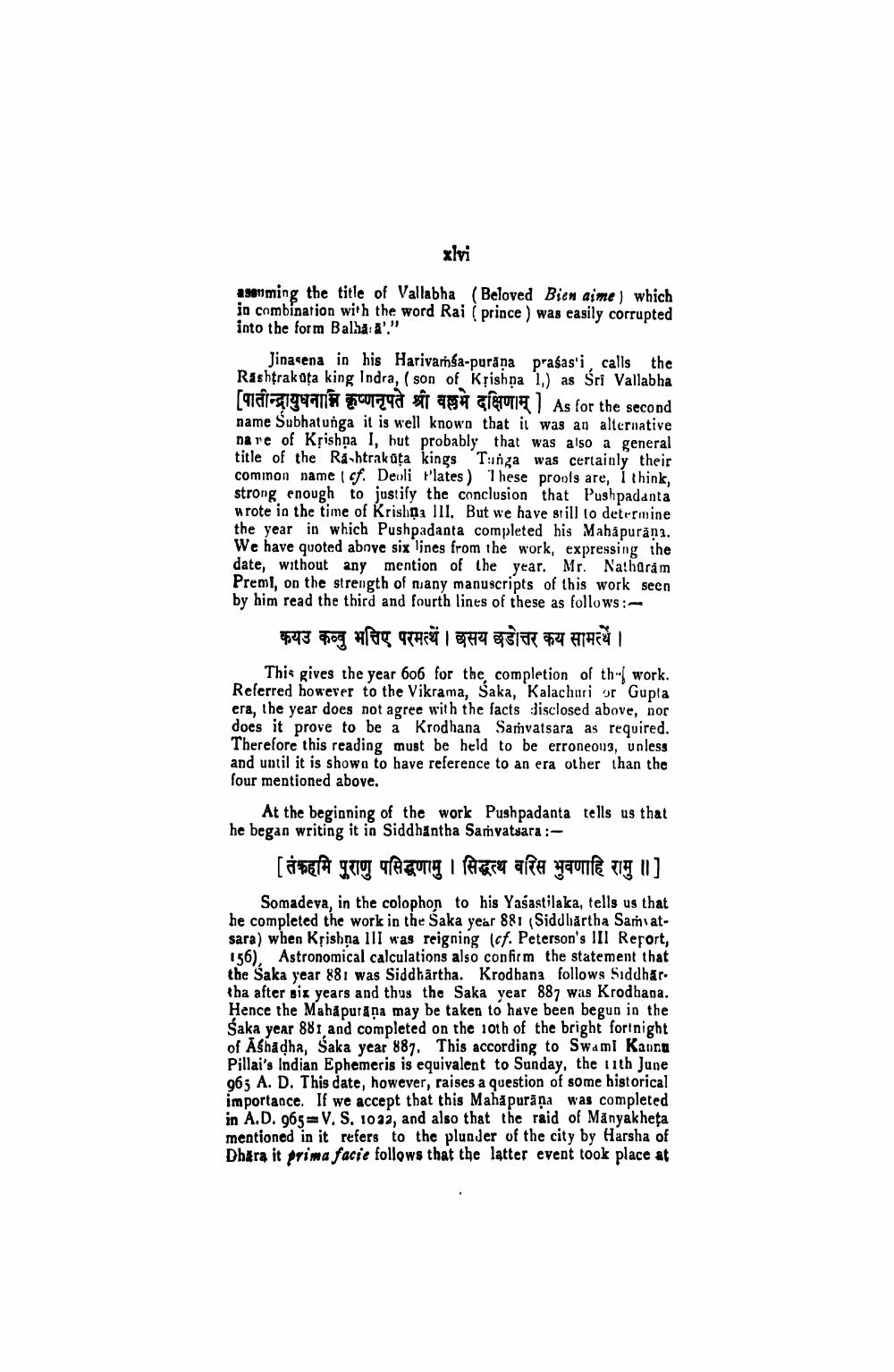________________
xlvi
130ming the title of Vallabha (Beloved Bien aime) which in combination with the word Rai (prince) was easily corrupted into the form Balha a'."
Jinasena in his Harivamsa-purana prasas'i, calls the Rashtrakata king Indra, ( son of Krishna 1,) as Sri Vallabha Tariga FUTETIT sîr ago ATT As for the second name Subhat unga it is well known that it was an alternative nare of Krishna I, hut probably that was also a general title of the Rahtrakata kings Tunga was certainly their common name of. Deoli t'lates) 1 hese prools are, I think, strong enough to justify the conclusion that Pushpadanta wrote in the time of Krishna III. But we have still to determine the year in which Pushpadanta completed his Mahapurana. We have quoted above six lines from the work, expressing the date, without any mention of the year. Mr. Natharam Preml, on the strength of many manuscripts of this work seen by him read the third and fourth lines of these as follows:
कयउ कव्वु भत्तिए परमत्थे । छसय छडोत्तर कय सामत्थें ।
This gives the year 606 for the completion of th work. Referred however to the Vikrama, Saka, Kalachuri or Gupta era, the year does not agree with the facts disclosed above, nor does it prove to be a Krodhana Samvatsara as required. Therefore this reading must be held to be erroneous, unless and until it is shown to have reference to an era other than the four mentioned above,
At the beginning of the work Pushpadanta tells us that he began writing it in Siddhantha Samvatsara :
[amela golu qagung i pensare ale autre ell]
Somadeva, in the colophon to his Yasastilaka, tells us that he completed the work in the Saka year 881 (Siddhartha Saṁiatsara) when Krishna III was reigning (cf. Peterson's III Resort, 156) Astronomical calculations also confirm the statement that the Saka year 881 was Siddhartha. Krodhana follows Siddhar. tha after six years and thus the Saka vear 887 was Krodhana. Hence the Mahapura na may be taken to have been begun in the Saka year 881 and completed on the 10th of the bright fortnight of Ashadha, Saka year 887. This according to Swami Kannu Pillai's Indian Ephemeris is equivalent to Sunday, the uth June 965 A. D. This date, however, raises a question of some historical importance. If we accept that this Mahapurāņa was completed in A.D. 965=V. S. 1012, and also that the raid of Manyakheta mentioned in it refers to the plunder of the city by Harsha of Dhara it prima facie follows that the latter event took place at




